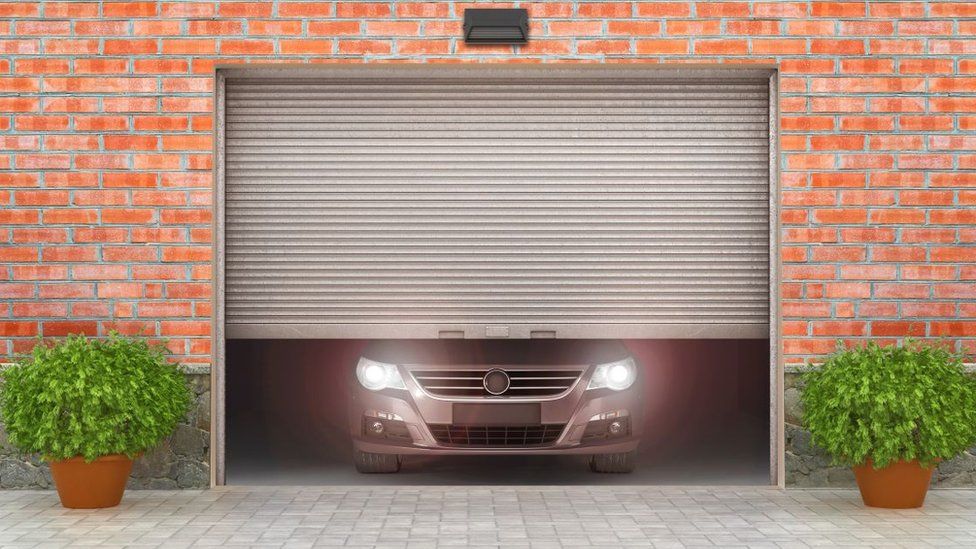ARTICLE AD BOX
 Image source, Illustration by Shutterstock
Image source, Illustration by Shutterstock
By Jack Fenwick
BBC Politics
A Belarusian company has been accused of bypassing UK sanctions and damaging British businesses.
Labour MP Dame Siobhain McDonagh said Alutech, which makes metal parts for garage doors, is "continuing to import banned products into the UK".
The MP is calling on the UK's tax authorities to take action against Alutech and other firms suspected of getting round sanctions.
Alutech declined to comment on the allegations.
Belarus was included in the UK's sanctions against Russia, as the country has allowed its territory to be used by Russia's army to launch attacks into northern Ukraine.
But MPs on the Treasury select committee are concerned that the sanctions regime is not working and have launched an investigation into it.
On Tuesday, committee member Dame Siobhain accused Alutech of "undercutting" a group of British companies by "supplying at a lower rate".
The British companies had been the sole distributors of Alutech's steel and aluminium products in the UK.
But when the companies ended the deal over sanctions in 2022, Alutech set up its own showroom, in the West Midlands, and, according to Dame Siobhain, began "stealing" their UK customers.
She told the committee the British companies "have lost roughly £10m and they've had to make redundancies to cope with their losses".
'Struggle to survive'
The MP said the issue had been reported to HM Revenue and Customs (HMRC), but the British companies had been told the onus was on them "to provide the evidence, even though the information required is only available to the HMRC".
A spokesperson for HMRC said "we can neither confirm nor deny investigations" into Alutech.
The British companies allegedly affected are Alunet Systems and JD UK, two Yorkshire-based firms that work in the supply chain for garage doors, the BBC can reveal.
Steve Hudson, who is the chief executive of both companies, told the BBC it had been a "struggle to survive".
On 25 March 2022, four weeks after Russia invaded Ukraine, the UK introduced additional duties of 35% to certain goods originating in Russia and Belarus.
Mr Hudson said his companies stopped dealing with Alutech at that point and began seeking alternative suppliers in Europe.
But he said revenue had "dropped by about 40%," and "from being a good, profit-making business contributing reasonable taxes to HMRC, we're now in a loss-making position".
Mr Hudson met Foreign Office officials last year to discuss the issue, but it's understood no minister was present.
In March this year, the BBC used a Freedom of Information request to ask for further details about that meeting.
The Foreign Office has delayed making a decision on whether to disclose that information, in order to conduct a test to decide where the public interest lies.
'Avoiding sanctions'
One Westminster source familiar with those discussions previously told the BBC that there had been confusion over whether the Foreign Office or HMRC was the correct body to intervene.
Mr Hudson said that talking to the government about the issue had been like "going through treacle".
"Maybe just completely naively, I thought that it would be much more straightforward and you'd be able to present some reasonable evidence because it's pretty clear what's happened to us… and somebody would be able to jump on it and then do something quite quickly," he added.
Image source, Getty Images
Image caption,Siobhain McDonagh is a member of the Treasury select committee
Siobhain McDonagh wants the UK government to explore whether it could place a specific sanction on Alutech, rather than relying on the existing sanctions regime.
Explaining one way that she believed the Belarusian company had been avoiding sanctions, she told MPs: "There is a list of sanction product codes for Russia and one from Belarus and in some instances the two lists do not match up, so a product can be sanctioned in Belarus, but not sanctioned if it comes from Russia.
"The company has been shipping the goods through Russia and avoiding the sanctions altogether."
Natalia Kubesch, a legal officer and sanctions expert at the human rights organisation Redress, told the Treasury committee that she believes there are other examples of Russian and Belarusian companies managing to bypass UK sanctions.
"I think it's probably unlikely this was an isolated incident and sanction evasion is continuing," she added.
German owners
Alutech was previously 75% owned by German company Hormann. This has risen to 100% ownership since the invasion of Ukraine.
Reports in Germany this month said that Hormann had been called into talks with the German government.
Dame Siobhain said: "The latest we heard is that in Germany, Hormann, who owns 100% of Alutech now, are now subject to an investigation by the public prosecutor's office for violating sanctions."
It's understood that Alutech has since applied to the UK government for a license to be legally allowed to import certain products from Belarus.
The BBC has approached Hormann for comment. It is understood the company strongly denies any violation of sanctions.
A UK government spokesperson said "together with our international partners, we have implemented the most severe package of sanctions ever imposed on a major economy.
"Non-compliance of those sanctions is a serious offence and those who breach them may be subject to a range of enforcement actions, including large financial penalties or referral for criminal prosecution."
They said "HMRC has fined five companies for breaches of the Russia sanctions regulations in the last two years and in August 2023 a company was fined £1m for the unlicensed export of controlled goods to Russia."

 11 months ago
58
11 months ago
58








 English (US) ·
English (US) ·